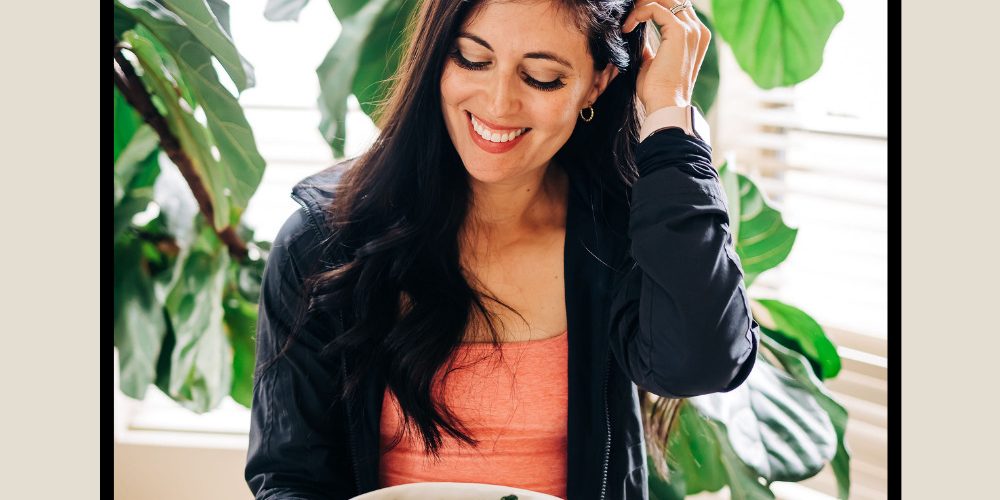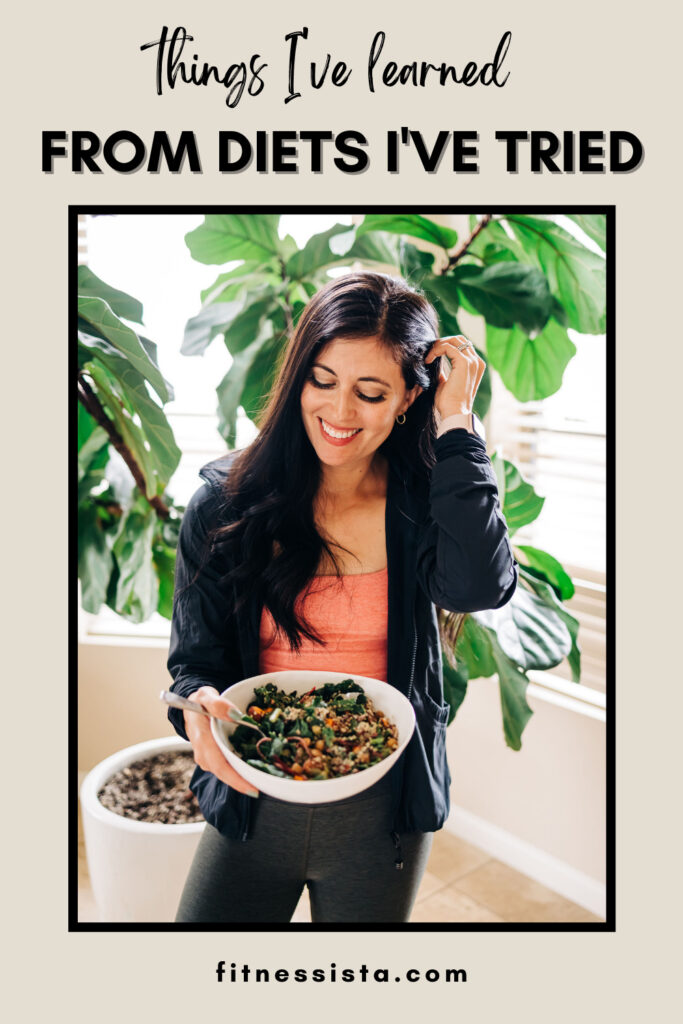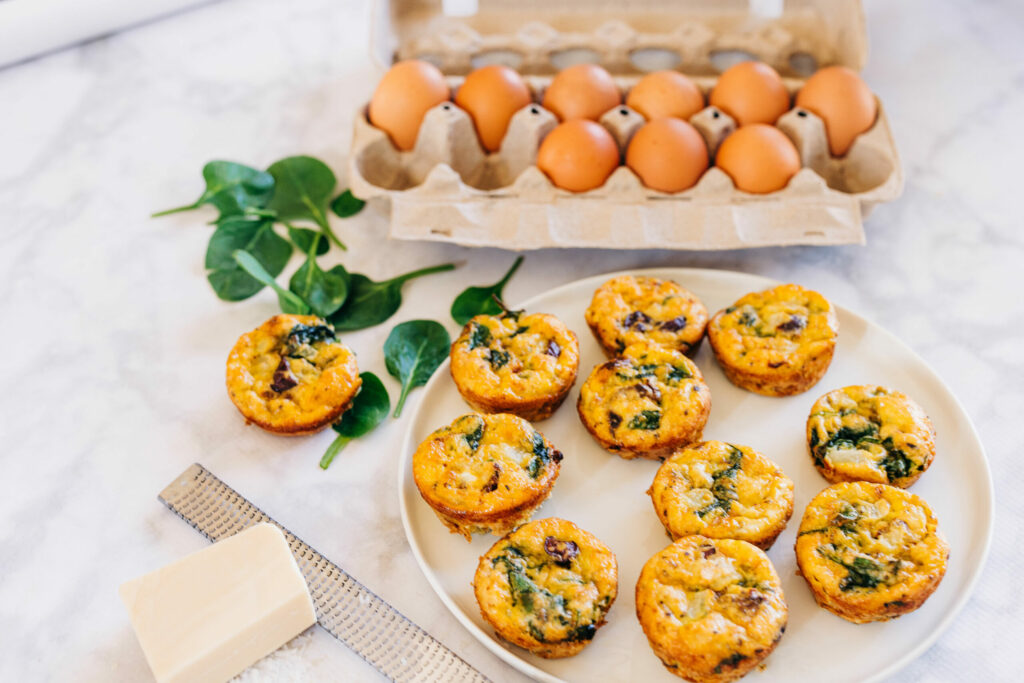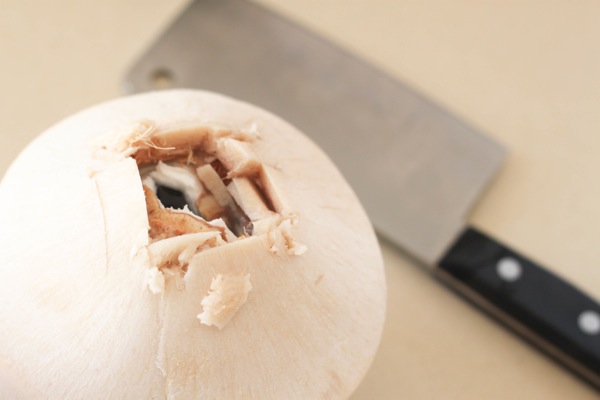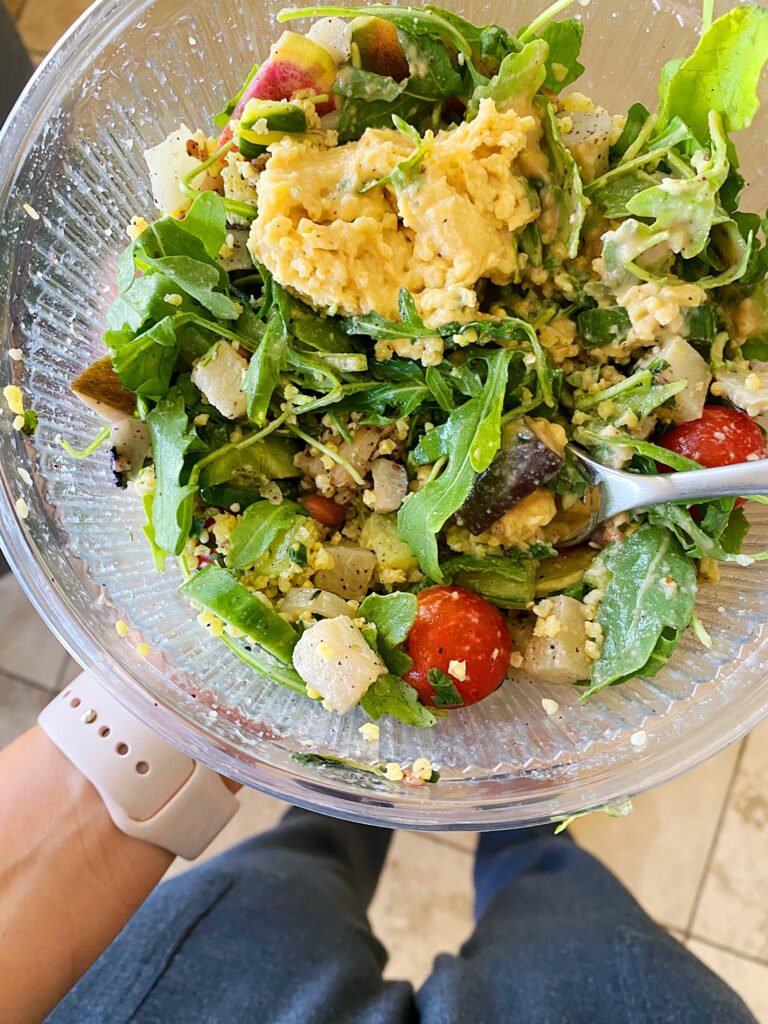Hi friends! How’s the week going so far? I hope you’re having a great morning. I’m excited for an F45 class and some adventures with the crew – I’m so happy the kids are off school this week!
For today’s post, I wanted to look back at some of the eating styles and diets I’ve tried and what I learned from them. Of course, if reading about this topic is triggering or uncomfortable for you, please skip this post and I’ll see ya in the am.
When I first embarked on my weight loss and health journey in college, I tried a lot of different things and quickly realized they weren’t the right fit for me. I’ll never forget drinking a WARM Slim Fast shake after finishing a philanthropy event for school. I went to my car afterwards, where my sad and warm Slim Fast was waiting for me. As I drank it, slightly gagging the entire time, I vowed that I would find a strategy with the freedom to eat real food and things I actually enjoyed.
While I could easily write a book on all of the ways different diets burned me and messed up my relationship with food, I choose to focus on the positive and the lessons I took away from trying so many things. One bonus: when I work with clients, there’s a good chance that I’ve also tried many of the strategies and quick-fix mentalities they’ve been through. It helps me relate to their experience and struggles, but also helps me design a sustainable and custom plan for them.
Here’s a little recap of some of the things I’ve learned and some of the stepping stones to where I am right now (still learning and evolving over time!):
Things I’ve learned from diets I’ve tried
South Beach
This is when I actually learned how to balance my plate. Before I tried South Beach, I ate a lot of carbs and fats, but didn’t pay attention to the quality of the food I was eating, and didn’t emphasis proteins or produce. This is when I really learned how to balance a plate, and that each meal should ideally contain a protein, a healthy fat, a smart carb choice, and some type of veggie or fruit. While I don’t *love* all of the things about South Beach (especially the fact that I ate SO much Splenda, for years), I do think that it transformed the way I eat, and it also helped me when I lost around 40 lbs in college.
Paleo
Originally I was like, “Why eat like a caveman when we have a Starbucks on every street corner?” It was perplexing to me at the time, because our lifestyle now is so different than our ancestors. At the same time, some aspects of Paleo make sense. You eat food that comes from an animal or the earth in some capacity (minus dairy, grains, and legumes), and that’s pretty much it. While I’ve definitely used Paleo strategies to simplify my eating style, I knew I couldn’t be full Paleo because I like rice and legumes a little too much. I also feel like Paleo eating styles can encourage a high intake of fats (they’re healthy fats, but I like everything in moderation) and didn’t like the idea of eliminating entire food groups.
Vegetarian
This is when I started to read food labels and pay attention to the ingredients in my food. I was an on-and-off vegetarian for years – I stopped eating red meat when I was 8 years old and didn’t start eating it again until my 30s, and still don’t eat pork or lamb – and I’ve learned that my body likes meat. Vegetarian makes me feel good for a while, but in the end, I just start to feel depleted.
When I was vegetarian, I started reading the labels to see if they contained any animal products, and in the process, I was shocked to see what was in our foods. There were SO many multi-syllable ingredients that I couldn’t pronounce. It helped me decide what packaged foods I actually wanted to include in my life, and which ones were worth skipping.
Raw vegan
OG blogger friends will remember the raw vegan days! (Also we have to talk about Bad Vegan. I have so much to say, especially as someone who went to one of Matthew’s raw vegan culinary schools and worked in his restaurant, and had a handful of email interactions with Sarma.) I’m only halfway through the documentary, but feel like they absolutely painted Matthew in a bad light, like he’s some kind of irresponsible playboy. For the record, he’s is an incredibly talented chef and is also a very kind and genuine human. He’s also crushing it, which gives you an idea of how her operates his businesses.
For Sarma – we did a giveaway on the blog together and I visited her restaurant a couple of times – I just feel like she’s a super generous person who had someone horrible take advantage of her, and I don’t think she’s a bad person. However, I feel badly for those who worked for her who obviously suffered for months. I’m just thankful that Netflix paid her enough to compensate all of her employees for the missing wages.
Anywayyyy back to raw vegan. This style of eating taught me how to pay attention to micronutrients, how to use various cooking tools and styles, and also how to take love and care into the preparation of food. Raw vegan can be a very labor-intensive style of eating (“ok I want a pizza in 2 days. Might as well make the crust and start dehydrating it today”), so it really taught me appreciation for the process. It’s when I truly fell in love with cooking (through un-cooking). I learned knife skills, how to dehydrate, sprout, ferment, make kombucha, and hack open a Thai coconut LIKE A BOSS.
(I only cut myself once.)
I also started to eat the rainbow. So many of my dishes were bold colors and beautiful flavor profiles. While I eventually implemented more cooked foods (easier to digest) and animal proteins, I still absolutely love raw vegan food.
Macro tracking
Macro tracking reminded me of what a portion size look like (1 tablespoon of peanut butter is so dang small), and also helped me to ditch a lot of the all-or-nothing mentality that I’ve experienced. As you guys know, I haven’t always had the best relationship with food. A lot of it stems from perfectionism, the messages I constantly was reading in magazines and women’s diet books, and the desire to do anything to be “healthy.” It lead to extremes that were difficult to break, but having Liv was a significant turning point in my relationship with nutrition.
I think macro tracking can be an awesome tool because ANY food can fit within your macros. It can be very freeing if you’re the type of person who feels like they can never enjoy dessert or a cocktail because it’s “not on the plan.” While I absolutely think it can turn eating into a math project – I liked food too much to do this for the long term – it can be a helpful tool in certain scenarios. With my current nutrition clients, we use hand-sized portions (a cupped hand is one serving of carbs, a fist is a serving of non-starchy veggies, a palm is a serving of protein, etc), so that no one has to break out a food scale or calculator. 😉
So tell me friend: what eating styles have you tried over time? Anything that you’ve learned or that was helpful for you?
What’s the WORST diet you’ve tried?
For me, it was 100% Weight Watchers. I know they’ve changed their program, but when I tried it, a single Subway sandwich used most of my points for the day. Giant fail.
Thanks so much for stopping by the blog today and I’m looking forward to reading your comments about your experiences.
xo
Gina
